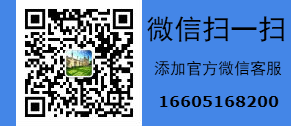新概念英语视频精讲课程下载第一册-第四册教学教程全集
更新时间:2022-06-14 09:55点击:





新概念英语视频精讲课程下载第一册-第四册教学教程全集
下载地址
http://www.gufengnet.com/1337.html
10倍速抗遗忘轻松记单词下载
https://pan.baidu.com/s/1A5qOEhDKxgq
【Composition】
1 She refused to answer any questions. She did not ask any questions. (not only…but…either)
2 She was not interested in the theatre. She was not interested in travel. (neither…nor)
1 She not only refused to answer question but she did not ask any question either. =She not only refused to answer question but ask no question either.
but…as well 可以加肯定也可以加否定 ; but…either只能加否定
as well, either 在此句中可省略
2 She was interested in neither the theatre nor travel.
=She was interested neither in the theatre nor in travel.(更好, 介词短语的并列)
【Key structures】
第2类条件句(虚拟条件句)
第1类条件句,谈论将有可能发生的事情,并且考虑其将来的真实结果。主句用一般将来时,从句用一般现在时或其他形式的现在时。
If you help me,I will be gratefull. 如果你帮我, 我会感激你 (正常语气)
If it rains, I will not go. 正常语气(不一定会去)
第2类条件句,if从句谈论想象的情况(假设与现在事实相反),主句则推测想象的结果。 从句使用一般过去时, 主句使用would+动词原形。尽管第2类条件句使用过去时,却并非指过去的时间,所以,if之后的过去时用法常被称为“非真实的过去”,整个条件句也被称作非真实条件句。
If you helped me,I would be grateful.
假如你能使他改变主意, 你会使他免了许多麻烦.
如果if从句中的动词是be, 那么应该在第一和第三人称单数名词之后用were。If I were you这种说法常用于提出建议。If I were you, I’d accept their offer.
第2类条件句有时也可代替第1类条件句来描述颇有可能发生的事情,但比第1类条件句较为“无把握”。第2类条件句经常用来描写完全不可能的事情。 If I had longer legs, I’d be able to run faster.
【Special Difficulties】
Make的用法
及物动词make的原义为“制造”,但它经常用于一些固定的结构,最常见的为make+(冠词)+名词形式:make progress(取得进步);make the bed(铺床);make conversation(找话题);make a noise(吵闹);make a promise(保证);make trouble(捣蛋,制造麻烦); make money(挣钱); make a speech(演讲);make a mistake(犯错误);make up one's mind(下定决心,拿定主意)
Do的用法
完全动词do也有一些固定短语:
do one's best(尽最大努力);do one's homework(做作业);do sb. a favour(帮忙);do a job(干家务);do work(做家务);do exercise(做练习);do business(做生意) do还可以与动名词连用:do some shopping(买东西,购物);do swimming(游泳);do some reading (读书)
(责任编辑:谷雨英语单词速记网)
下载地址
http://www.gufengnet.com/1337.html
10倍速抗遗忘轻松记单词下载
https://pan.baidu.com/s/1A5qOEhDKxgq
资料目录
新概念英语视频教程第一册(第1-144课全)
新概念英语视频教程第二册(第1-96课全)
新概念英语视频教程第三册(第1-60课全)
新概念英语视频教程第四册(第1-48课全)
举例
Lesson 40 Food and talk【Composition】
1 She refused to answer any questions. She did not ask any questions. (not only…but…either)
2 She was not interested in the theatre. She was not interested in travel. (neither…nor)
1 She not only refused to answer question but she did not ask any question either. =She not only refused to answer question but ask no question either.
but…as well 可以加肯定也可以加否定 ; but…either只能加否定
as well, either 在此句中可省略
2 She was interested in neither the theatre nor travel.
=She was interested neither in the theatre nor in travel.(更好, 介词短语的并列)
【Key structures】
第2类条件句(虚拟条件句)
第1类条件句,谈论将有可能发生的事情,并且考虑其将来的真实结果。主句用一般将来时,从句用一般现在时或其他形式的现在时。
If you help me,I will be gratefull. 如果你帮我, 我会感激你 (正常语气)
If it rains, I will not go. 正常语气(不一定会去)
第2类条件句,if从句谈论想象的情况(假设与现在事实相反),主句则推测想象的结果。 从句使用一般过去时, 主句使用would+动词原形。尽管第2类条件句使用过去时,却并非指过去的时间,所以,if之后的过去时用法常被称为“非真实的过去”,整个条件句也被称作非真实条件句。
If you helped me,I would be grateful.
假如你能使他改变主意, 你会使他免了许多麻烦.
如果if从句中的动词是be, 那么应该在第一和第三人称单数名词之后用were。If I were you这种说法常用于提出建议。If I were you, I’d accept their offer.
第2类条件句有时也可代替第1类条件句来描述颇有可能发生的事情,但比第1类条件句较为“无把握”。第2类条件句经常用来描写完全不可能的事情。 If I had longer legs, I’d be able to run faster.
【Special Difficulties】
Make的用法
及物动词make的原义为“制造”,但它经常用于一些固定的结构,最常见的为make+(冠词)+名词形式:make progress(取得进步);make the bed(铺床);make conversation(找话题);make a noise(吵闹);make a promise(保证);make trouble(捣蛋,制造麻烦); make money(挣钱); make a speech(演讲);make a mistake(犯错误);make up one's mind(下定决心,拿定主意)
Do的用法
完全动词do也有一些固定短语:
do one's best(尽最大努力);do one's homework(做作业);do sb. a favour(帮忙);do a job(干家务);do work(做家务);do exercise(做练习);do business(做生意) do还可以与动名词连用:do some shopping(买东西,购物);do swimming(游泳);do some reading (读书)
相关文章




 QQ客服1:2151239526
QQ客服1:2151239526  | 苏ICP备06011263号|
| 苏ICP备06011263号| 
